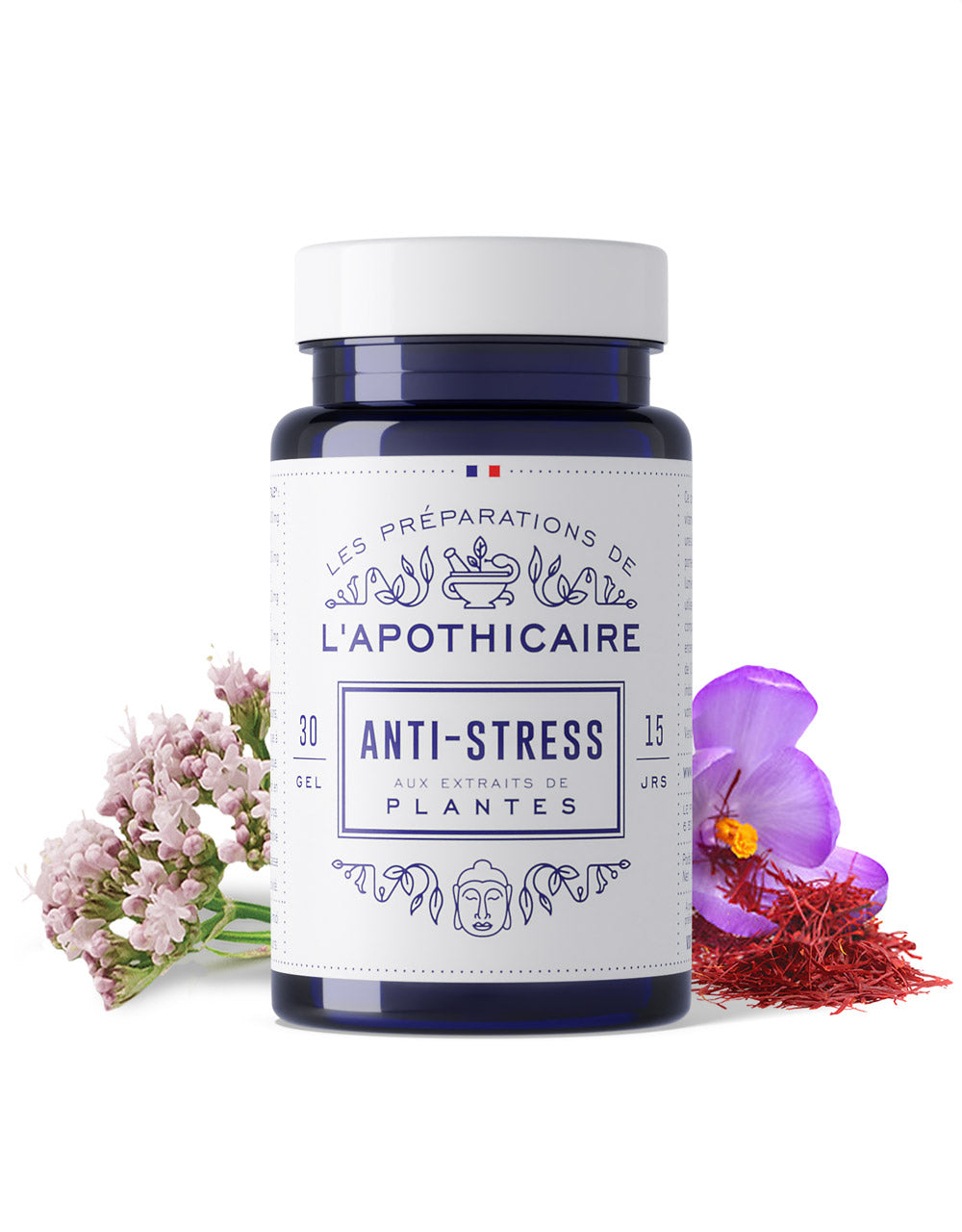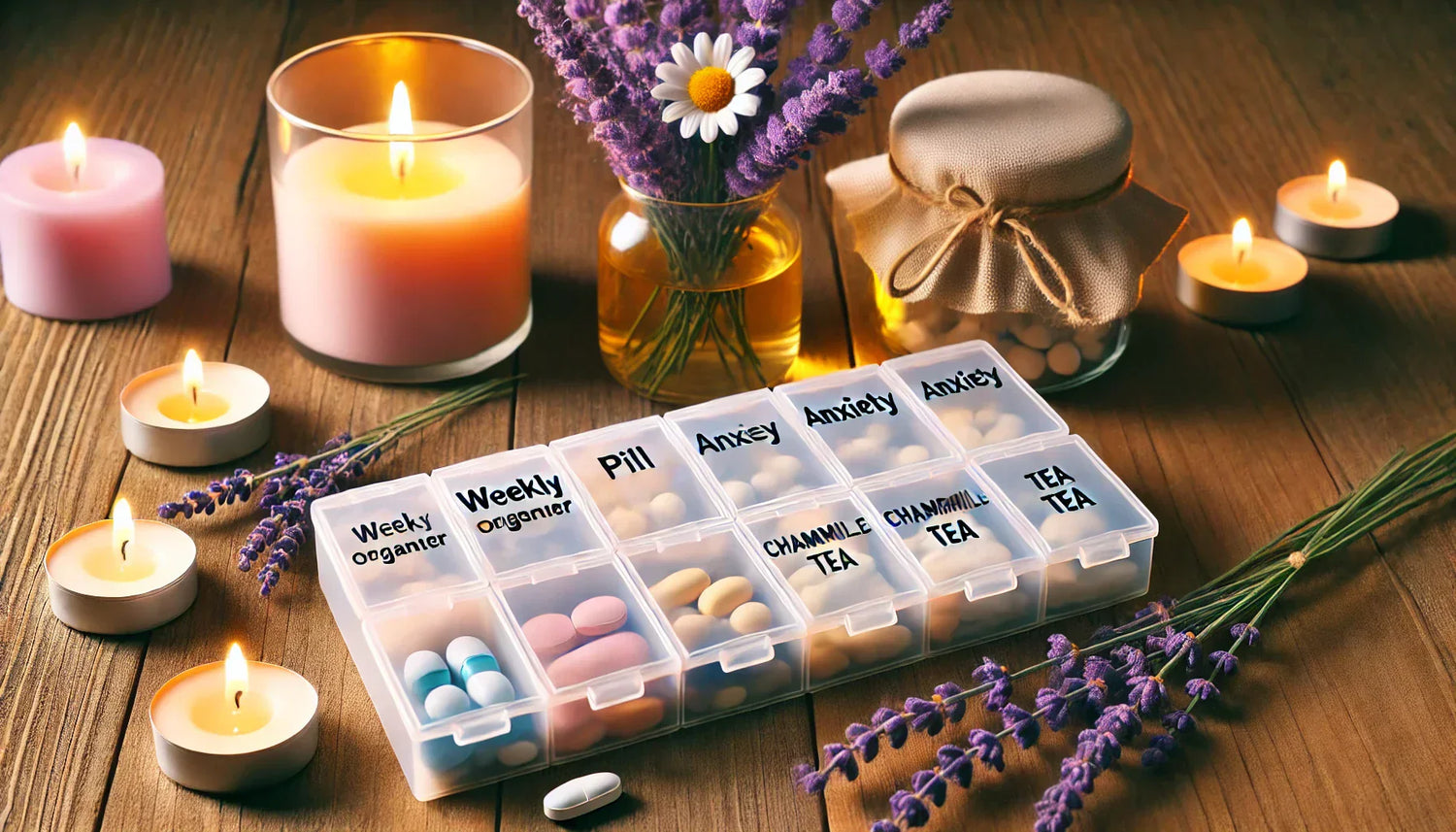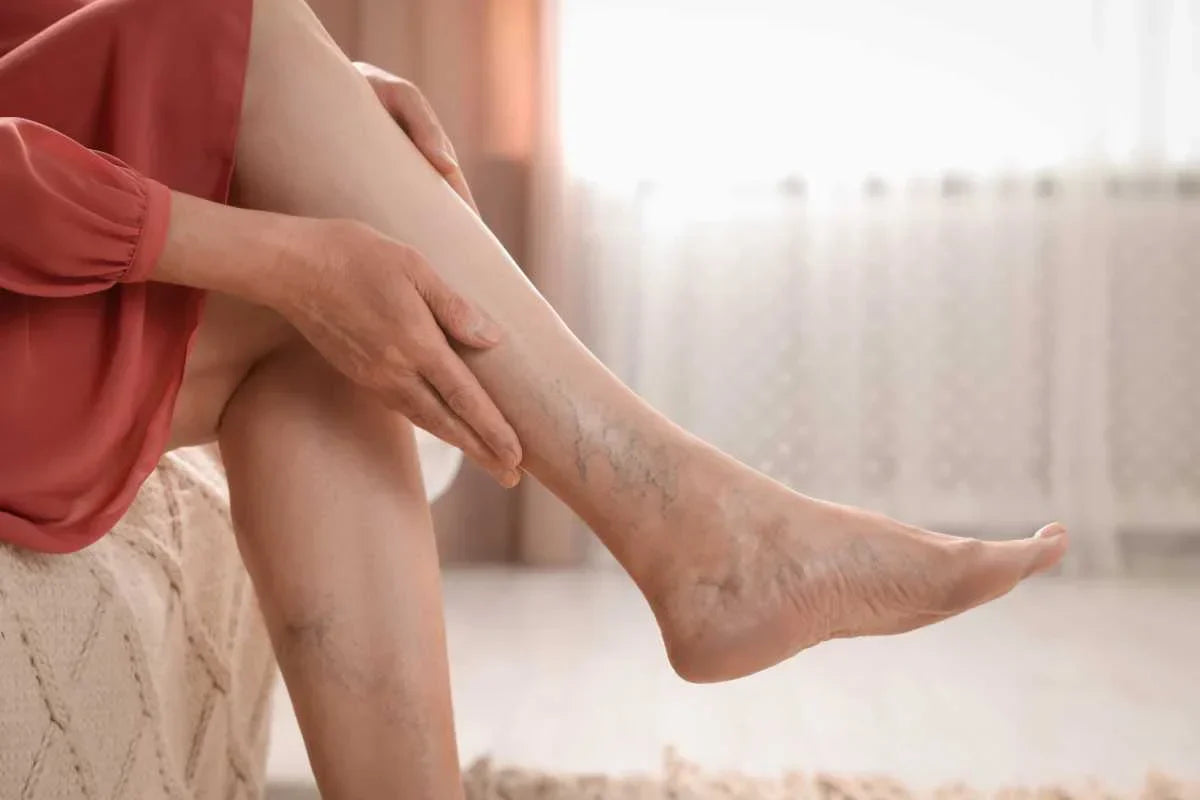If you’re looking to understand how to better manage your anxiety, this article will provide you with a practical guide to the best medications available, both prescription and non-prescription. Whether you opt for natural solutions like herbs and vitamins or consider prescription medication, we review the options, their benefits, and potential side effects.
Warning! The information regarding prescription medications presented in this article is for informational purposes only . Any medication treatment for anxiety requires a prescription and monitoring by a qualified healthcare professional. Do not take any medication without the advice of a doctor, as each treatment must be tailored to your individual condition, based on your medical history and symptoms.
- What is anxiety?
- The different types of anxiety
- Symptoms of Anxiety
- Over-the-counter medications for anxiety
- Prescription drugs
What is anxiety?
Anxiety is a natural reaction of the body to situations perceived as stressful or threatening .
It manifests itself as a feeling of fear, worry or unease, often disproportionate to the actual danger or circumstances.
Although anxiety is a normal response in certain situations (such as before an exam or an important presentation), it can become problematic if it is excessive, persistent, or interferes with daily life .

The different types of anxiety
Anxiety does not present itself in the same way for everyone: it is specific to each case, experience, trauma for some . Here are the most known types of anxiety.
- Generalized anxiety disorder (GAD) : This is one of the most common types of anxiety, marked by excessive and constant worry about many aspects of daily life, often for no apparent reason.
- Panic disorder : Characterized by sudden, intense panic attacks, accompanied by physical symptoms such as palpitations, tremors, and a feeling of choking.
- Specific phobias : Irrational and intense fear of a specific object or situation, such as heights (acrophobia), spiders (arachnophobia), or enclosed spaces (claustrophobia).
- Social anxiety (social phobia) : intense fear of social or performance situations, where the person fears being judged, criticized or humiliated.
- Obsessive-compulsive disorder (OCD) : Characterized by obsessions (repetitive thoughts) and compulsions (repetitive behaviors to relieve those thoughts).
- Post-traumatic stress disorder (PTSD) : Occurs after a traumatic event, with flashbacks, nightmares, and persistent hypervigilance.
But how do these disorders manifest themselves physically?
Symptoms of Anxiety
| Types of symptoms | Symptoms |
| Physics |
|
| Psychological |
|
| Behavioral |
|

Over-the-counter medications for anxiety
While it is always recommended to consult a healthcare professional for chronic or severe anxiety, some over-the-counter remedies may provide relief for moderate episodes of anxiety . These options include herbal supplements, vitamins and minerals, and probiotics. Here is an overview of the different categories available over the counter.
Herbal Supplements
Herbal remedies are commonly used to ease symptoms of mild to moderate anxiety. Here are some of the most common ones:
- Valerian : A calming herb, traditionally used for its soothing effects, especially to improve the quality of sleep and reduce nervous agitation.
- Passionflower : This plant is known for its mild anxiolytic properties, acting on irritability and stress.
- Lemon balm : Used for its relaxing properties, lemon balm helps relieve nervous tension and improve mood.
These plants are available in the form of capsules, liquid extracts or herbal teas and can be a first natural approach to managing anxiety.
Vitamins and minerals
Certain nutrients may play a key role in managing anxiety, supporting nerve function and helping regulate stress levels .
- Magnesium : Known for its relaxing effect, magnesium helps reduce anxiety by regulating neurotransmitter activity. Magnesium deficiency can lead to mood disorders, stress and irritability.
- B vitamins : especially vitamin B6 and B12, which play a role in the production of neurotransmitters such as serotonin and dopamine, which are essential for managing stress and anxiety.
- Vitamin D : Vitamin D deficiency has been linked to symptoms of depression and anxiety. Taking supplements can improve mood and overall well-being.
These vitamins and minerals are often available as dietary supplements, alone or in combination, and are recommended in cases of diagnosed deficiency.

Ease your stress with Apothecary Preparation!
Our formula based on passionflower and magnesium reduces tension and promotes relaxation.
Discover the anti-stress capsules!Probiotics
Recent research has highlighted the link between gut microbiota and mental health , particularly when it comes to anxiety and depression . Probiotics, which promote good gut health, may indirectly influence mood.
- Lactobacillus and Bifidobacterium : Certain strains of these probiotics have shown positive effects on reducing symptoms of anxiety. By promoting a healthy microbiota, they help improve communication between the gut and the brain, thereby reducing stress responses.
Prescription drugs
Warning! When it comes to sleep disorders or anxiety, prescription medications should be used exclusively under the supervision of a doctor. They carry significant risks, including serious side effects and the risk of addiction.
Never take these treatments without personalized medical advice. A healthcare professional will assess your situation and prescribe the appropriate treatment based on your specific needs.
Here is an overview of the main classes of drugs prescribed for these situations.
Benzodiazepines
Benzodiazepines are drugs that act on the central nervous system by increasing the effect of GABA , an inhibitory neurotransmitter that reduces neuronal activity. They are mainly used to:
- Treat anxiety : by quickly calming the symptoms of anxiety.
- Relieve insomnia : by promoting sleep onset and reducing nighttime awakenings.
- Relieve anxiety attacks or panic disorders .
Benzodiazepines include medications such as diazepam (Valium) , lorazepam (Ativan), and clonazepam (Rivotril) . Although they are effective in the short term, they are not recommended for long-term treatment due to the high risk of addiction and side effects such as drowsiness, confusion, and memory impairment.
Antidepressants
Some antidepressants are also prescribed to treat insomnia or anxiety, although their primary use is to treat depression . They work by altering the levels of neurotransmitters such as serotonin and norepinephrine. There are two broad categories used in this context:
- Tricyclic antidepressants ( eg, amitriptyline, doxepin ), which are often used in low doses to treat insomnia, because of their sedative effects.
- Serotonin reuptake inhibitors (SRRIs) , such as paroxetine (Deroxat) or sertraline (Zoloft) , which are used to treat anxiety and panic disorders.
These medications may be effective for chronic insomnia related to depression or anxiety, but they can also cause side effects such as drowsiness, weight gain, and sexual dysfunction.
Beta-blockers
Beta-blockers, such as propranolol or atenolol , are primarily used to treat high blood pressure and heart problems . However, they may also be prescribed to reduce physical symptoms of anxiety, such as palpitations, sweating, and tremors. These medications work by blocking beta-adrenergic receptors, which decreases the body's response to adrenaline.
They are useful in situations of occasional stress (such as social phobia) or for generalized anxiety disorders . However, they do not directly treat the psychological symptoms of anxiety and may cause side effects such as fatigue, dizziness, or sleep disturbances.
Anxiety is therefore a disorder that can seriously affect daily life. Do not hesitate to contact a professional to help you if it becomes too much.







